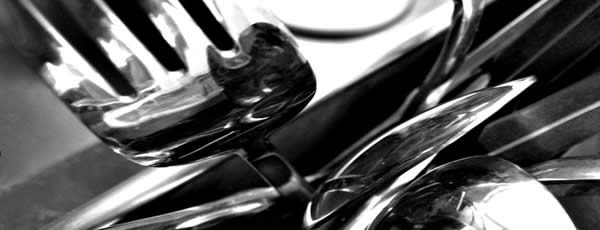-
Keilim
 The Keilim Mikvah is located adjacent to the main Mikvah building. We hope you’ll find that the paragraphs below, containing some background and practical information concerning the immersion of vessels, useful and informative.
The Keilim Mikvah is located adjacent to the main Mikvah building. We hope you’ll find that the paragraphs below, containing some background and practical information concerning the immersion of vessels, useful and informative.Why?
The law of Tevilat Keilim is intimately connected with the Jewish attitude to food. Eating by itself is an animal function, but the Almighty required us to elevate the mundane act of eating and vest it with special sanctity – Kedusha. The food we eat must be kosher and the table upon which we eat represents the holy Altar. Similarly the dishes and utensils (keilim) used for preparing food and for eating must be given special holiness. Therefore, when these dishes have been previously owned by a Gentile they must be immersed in a Mikveh before their use.
What type of utensils require immersion?
Utensils made from metal, glass, pyrex or duralex require immersion with a Brachah (see below). Those made from porcelain or glazed earthenware should be immersed without a Brachah. Those made from nylon, plastic, polythene, bakelite or wood require no immersion at all. Only those utensils which come into direct contact with food require immersion but storage containers that are not brought to the table do not.
What is the correct procedure?
Utensils must be completely clean – free of dirt, rust, stickers, labels or glue. WD-40 is very effective in removing adhesive. Hold the item in your hand and say the Brachah:
Baruch Atah Hashem (Using the correct word), Elokeinu (using the correct word) Melech Haolam, Asher Kidshanu Bemitzvotav Vetzivanu Al Mitzvat Keilim ( substitute the word ‘Keili’ – for one item).
The immersion must be done in one go and the water must cover every surface of the item. If you use the basket provided, make sure that you swirl it to enable the water to cover all surfaces.
Please remember…
- To dispose of all waste in the bin provided
- A small child should only perform this Mitzvah if supervised by an adult
- When in doubt consult your Rabbi or any other Rabbinic Authority
For further enquiries, contact 07930 380 415
